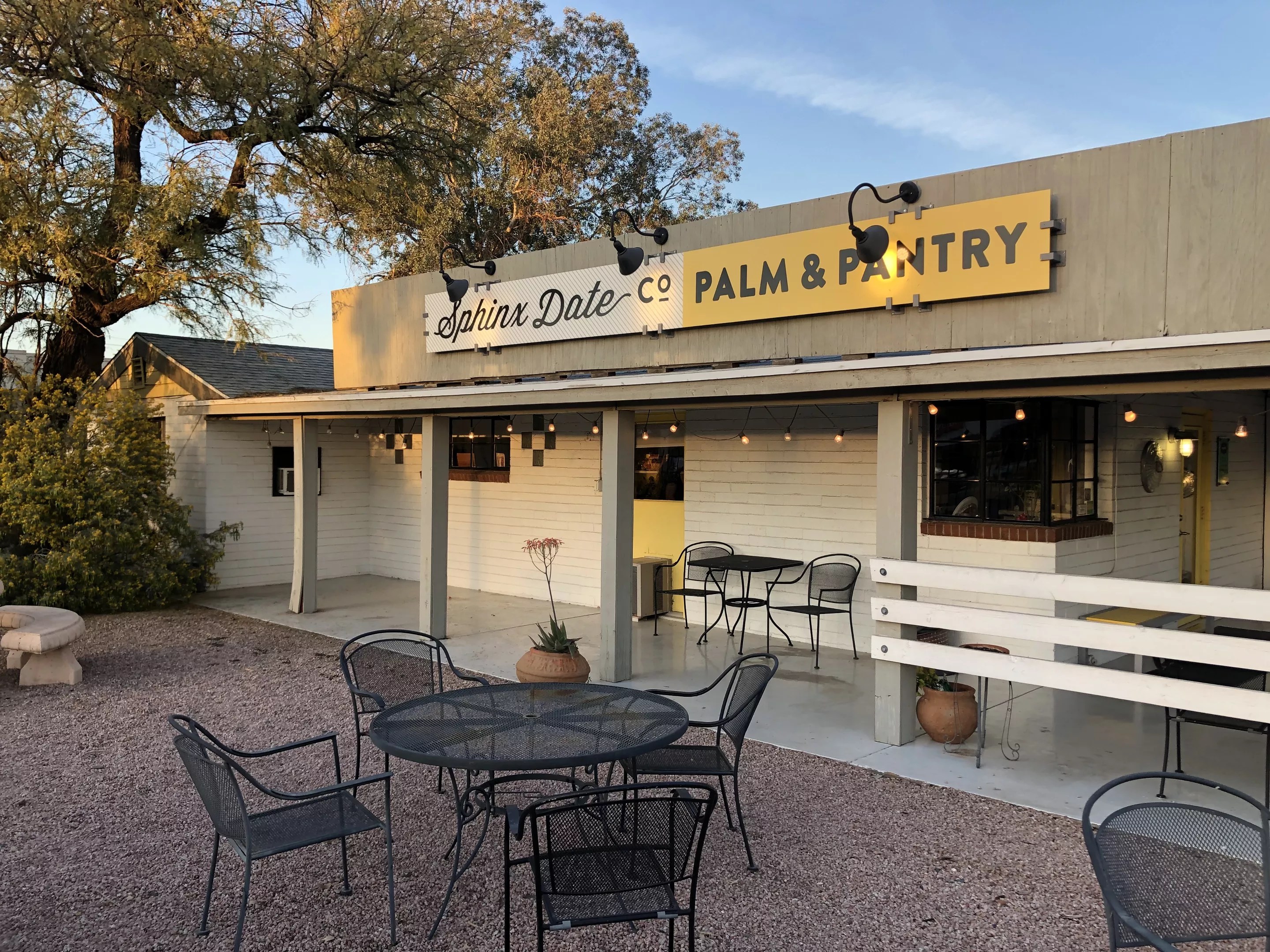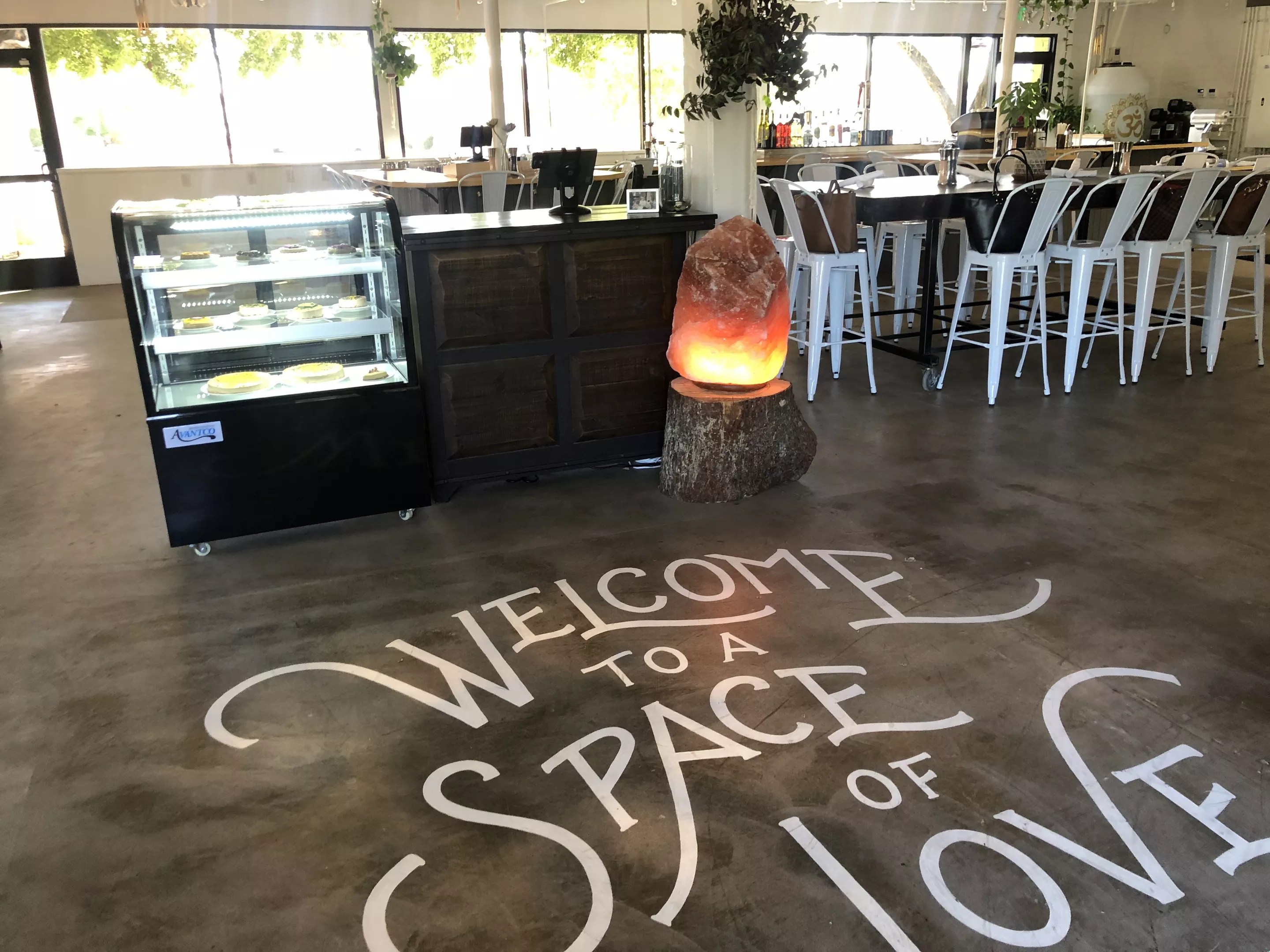
Alexandra Gaspar

Audio By Carbonatix
Remember when toilet paper, frozen chicken, and good produce were rare finds?
It wasn’t that long ago. When coronavirus arrived in the spring, it wasn’t uncommon to walk into a grocery store and encounter rows and rows of empty shelves. In response, many consumers turned to community-supported agriculture (CSA) boxes – subscription-based crates of in-season fruits and vegetables from a local farmer. These boxes can supplement supermarket shopping and ensure people have access to fresh produce.
Historically, subscribers have picked up their boxes from farmers’ markets and the like, but as COVID-19 picked up speed, more and more restaurants, coffeeshops, and boutique grocers began offering CSA programs.
Now, restaurants are open again (some of them, anyway) and grocery stores are mostly back to normal. But it looks like CSA programs are here to stay at several Phoenix establishments.

Sphinx Date Co. Palm and Pantry partnered with RhibaFarms to bring fresh, local produce to Scottsdale.
Chris Malloy
Scottsdale’s Sphinx Date Co. Palm and Pantry, a food and gift shop specializing in Arizona-grown dates, faced the usual challenges in the early days of the pandemic. But the small market’s owners knew farmers had been hit hard as well; the restaurants that normally purchased crops had begun to close. So Sphinx partnered with RhibaFarms in the San Tan Valley to bring CSA boxes to the Scottsdale area.
“We wanted to be able to offer those items to our customers as a complement to all of the other items that we carry,” says Sphinx owner Rebecca Seitz, “but also, to really be another outlet for RhibaFarms.”
Sphinx and RhibaFarms began their partnership the last week of May, offering farm boxes with a rotating menu of produce depending on what could be harvested. Typically, CSAs require a subscription for the whole growing season, but the Sphinx and RhibaFarms partnership allowed customers to purchase boxes on a week-by-week basis. Customers could add some of Sphinx’s specialty items (local dates, salts, and jams) to their order, too, of course.
Seitz says she’s seen an uptick in online ordering since the CSA program began, and hopes this community support continues long after the pandemic ends.
“There is more of a consciousness around the value of shopping local,” she says, “and I do think that will persist.”

Greg Peterson of The Urban Farm educates locals on how to grow their own food, but he loves CSA programs to support farmers.
James Deak
Greg Peterson, owner of The Urban Farm in central Phoenix, says he’s monitored many local CSA programs throughout the pandemic. He says many have seen sales go through the roof. His business, which educates people on how to grow their own food, has seen an uptick in popularity as well; Peterson says he’s added about 20,000 people to his newsletter list in the last three months.
He believes the CSA surge is the result of a fear of food insecurity and not necessarily an emphasis on health or wellness. Noting the panic-buying prevalent seen at supermarkets in the early days of the pandemic, Peterson says Phoenix, like most urban cities, only has a three-day supply of food available.
“People don’t make a change until they’re hit with a Mack Truck,” Peterson says. “The Mack Truck in this case was our food system challenges.”
He says he saw a similar increase in gardening and CSA interest after the economic recession in 2009 as well. He compares the dynamic to the victory gardens of World War II, where families were made to grow their own food in the backyard during wartime as many grocery items were either rationed or rare.
Overall, Peterson says he’s a major supporter of CSA programs for their positive environmental impacts and community involvement.
“It gives the little guy an opportunity to grow food for their neighborhood,” he says, “and then have an income.”

The Giving Tree opened its doors to a dozen local farmers during the shutdown and will continue to offer CSA boxes.
Giving Tree Caf
The Coronado District’s Giving Tree Cafe had those little guys in mind when it decided to partner with a dozen organic growers. Knowing many local farms were struggling to sell their produce, owner David Warr turned his vegan and vegetarian restaurant into a CSA distribution center.
“Even though … you couldn’t find anything on the grocery store shelf, these local organic farmers had food in their fields that was rotting or in peril of rotting,” Warr says of the early days.
Again, unlike a typical subscription-based CSA program, Giving Tree’s allows customers to customize their boxes. Options include produce from Arizona Microgreens, Southwest Mushrooms, Crooked Sky Farms, and others. Warr was connected to these area farms through Green on Purpose, an online hub for local growers.
Warr also began bottling and offering his own salad dressings to go along with whatever greens are in a guest’s CSA order. This way, the cafe could get a boost, too.
At the height of the shutdown, Warr says the program was flourishing – bringing 40 to 50 people to the cafe weekly for their farm boxes. That number has since leveled off to 15 or 20 steady customers. But Warr will continue to offer the program, saying it’s a value to the neighborhood and a way to support local farms year-round.
“Unfortunately, [CSAs are] one of those things that people don’t utilize until an emergency or crisis happens,” he says. “If we were to use the CSAs on a regular basis, it probably would alleviate or prevent the emergencies from happening in the first place.”